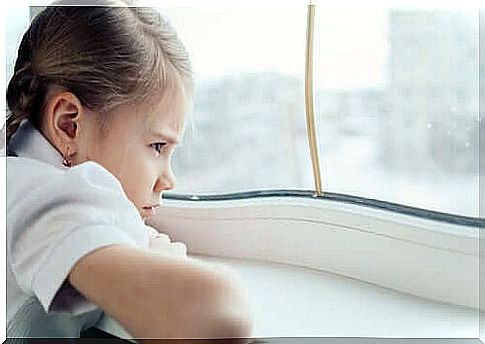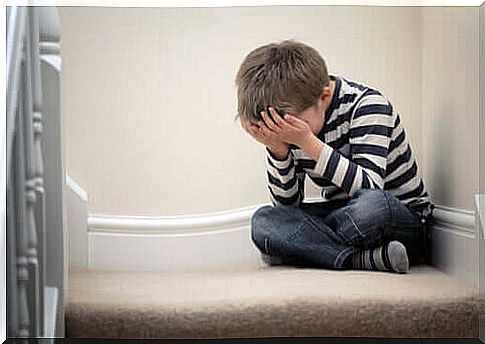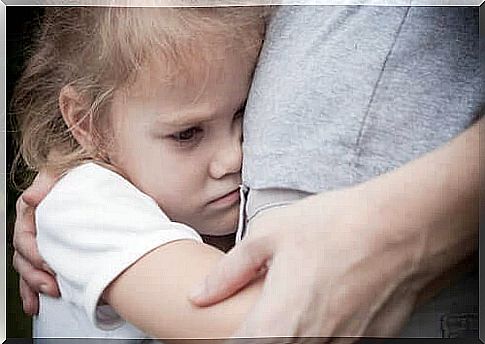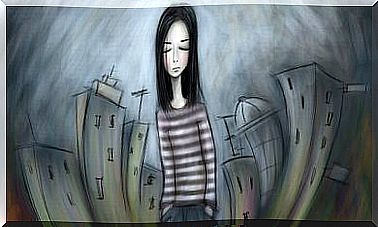School Phobia: When Going To School Becomes A Problem

Many people feel fears during their childhood. Fear of the dark, certain animals, specific characters or fantastic beings, natural phenomena such as storms, etc. However, in most cases, these fears disappear as the little ones grow, and do not reach the point of becoming phobias, as is the case with school phobia.
What to do when certain fears persist over time and manifest themselves in a disproportionate way, interfering with the child’s life?
What is school phobia?
School phobia is defined as the irrational and excessive fear of certain school situations that results in great difficulty in going to school or staying at school. The causes of this phobia can be varied. For example:
- Rejection by peers and teachers.
- Difficulties in school performance.
- Frequent school changes.
- Conflicts at home.
- Diseases and derived symptomatology.
All these situations provoke in the child an intense anxiety response, together with alterations at the motor, physiological and cognitive levels.

cognitive symptoms
Within this typology, negative thoughts about school stand out. In addition, it is also worth highlighting the anticipation of negative consequences (for example, reprimands by the teacher) that will not necessarily happen.
The child has a negative view of their performance in the classroom or is distressed by the idea of vomiting, dizziness or other physical symptoms in front of their peers.
Motor symptoms
The main symptom within motor alterations is avoidance. That is, resistance to going to school, expressed both physically and verbally.
The child complains of pain or says he is sick, does not get out of bed, does not dress, does not eat breakfast, etc. In short, he does not perform the characteristic routine of preparing to go to school. Also, if you go, the child may cry, scream or try not to enter.
physiological symptoms
They are characterized by a significant increase in physiological activation. This manifests with symptoms such as sweating, muscle tension, stomach pain, diarrhea, dizziness, among others.
School phobia vs. separation anxiety
It is very important – when determining whether a child has school phobia – to differentiate it from separation anxiety.
Separation anxiety is understood as the child’s fear of separating from people with whom they have a strong emotional bond, usually their parents. For example, when separating from them to go to school, go on an excursion, go to sleep at a friend’s house, etc.
Therefore, to differentiate separation anxiety from school phobia, we must ask why the child does not want to go to school. If the focus of fear is to separate from the parents, the phobia is discarded.

Overcoming school phobia
There are several techniques and methods to reduce the level of disability that the phobia produces. Knowing this information, we can finally get rid of it.
The most effective ones are based on cognitive-behavioral psychology, which is based on the idea that a change in thinking involves a change in behavior, and vice versa. The most common methods are:
- Systematic desensitization: especially recommended when the child wants to avoid certain school situations. The technique is based on exposing the child to this situation in a progressive way. Its purpose is to reduce anxiety within the situation so that the child understands that nothing bad is happening. In this way, the negative reinforcement that avoidance produces ends up disappearing.
- Social skills training: Fear of going to school may be based on rejection from some of your peers. In this case, the child can be trained in social skills so that they have tools to improve their relationship with them.
- Cognitive Restructuring: Restructuring is based on changing the child’s maladjusted or irrational beliefs. In this way, the negative value associated with the school is reduced or transformed into a more positive and realistic one.
- Relaxation training: By learning and practicing relaxation techniques, the child learns to control the physiological symptoms of anxiety. This technique is applied together with others, such as restructuring or exposure.
Drug use in school phobia
The main objective of the treatment of school phobia is that the child can go to school without feeling anxiety, fear and discomfort.
Although it is also possible to use drugs, especially antidepressants, it is important to consider the balance between cost and benefit of administering them.
Certain studies suggest that the side effects of these medications do not compensate for their use, considering that there are psychological therapies that work and can be substituted.
Thus, psychological therapies prove to be an effective choice and with results that will last in the long term.








